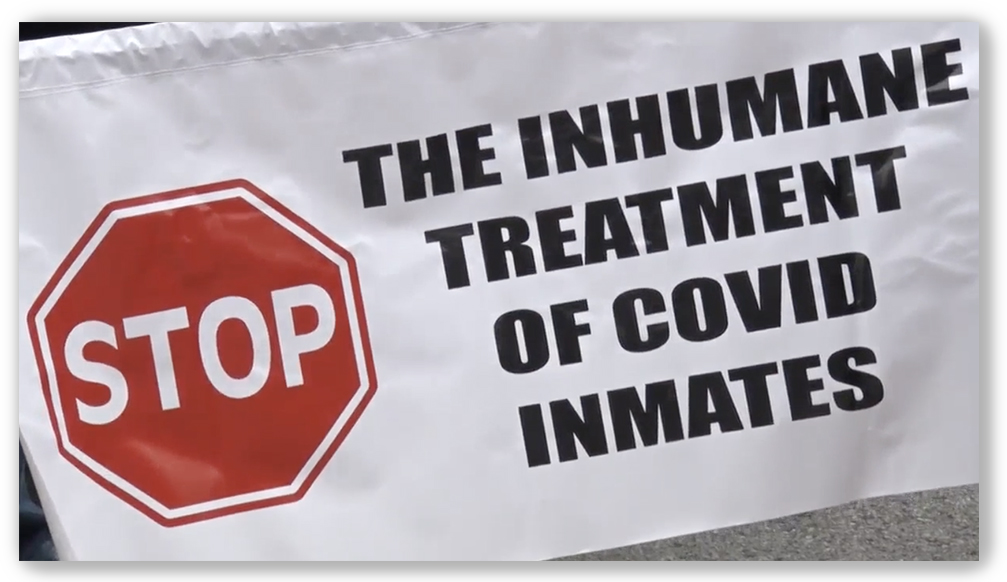We post news and comment on federal criminal justice issues, focused primarily on trial and post-conviction matters, legislative initiatives, and sentencing issues.

OBIT FOR A JUSTICE REFORM WARRIOR
Representative Sheila Jackson Lee (D-TX), a leading liberal voice for racial and criminal justice reform during her three decades in the House of Representatives, died last Friday of pancreatic cancer at age 74.
 Jackson Lee, elected to Congress in 1994 representing a district in urban Houston, has served in the past as chairwoman of the Judiciary Subcommittee for Crime, Terrorism and Homeland Security (and currently had been the ranking member). She was a senior member of the Judiciary, Homeland Security and Budget committees. She was the author and lead sponsor of the legislation that in 2021 established Juneteenth, commemorating the end of slavery in the United States, as the first new federal holiday in 38 years.
Jackson Lee, elected to Congress in 1994 representing a district in urban Houston, has served in the past as chairwoman of the Judiciary Subcommittee for Crime, Terrorism and Homeland Security (and currently had been the ranking member). She was a senior member of the Judiciary, Homeland Security and Budget committees. She was the author and lead sponsor of the legislation that in 2021 established Juneteenth, commemorating the end of slavery in the United States, as the first new federal holiday in 38 years.
Jackson Lee’s life ambition back in 1960s was to be a secretary, but she received a college scholarship created after Rev. Martin Luther King was assassinated in 1968. She made the most of her opportunity, graduating from Yale with a political science degree and earning a law degree in 1975 from the University of Virginia.
She said she had benefitted from “the hills and valleys, the broken bodies and broken hearts, the loss of life of many who have gone on before me.”
Federal prisoners may remember her for her dogged determination to reduce sentence length. Starting in 2003, she introduced what inmate lore generally calls the “65% law,” a measure that would have let prisoners convicted of nonviolent offenses serve only a portion of their sentences. She would introduce the bill at the beginning of every two-year Congress, always as the only sponsor, only to see it die a lonely death without getting as much as a subcommittee hearing.
The current version, the Federal Prison Bureau Nonviolent Offender Relief Act of 2023 (H.R. 54) calls for nonviolent offenders who are at least 45 years old and who have zero criminal history points and no incident reports to serve only 50% of their sentences. This bill, like her prior efforts, has zero percent chance of passage.
On the House committee she chaired, Jackson  Lee will be remembered for lambasting then-director Michael Carvajal for the Bureau of Prisons’ myriad COVID failures. In 2022, she worked with Majority Whip Richard Durbin (D-IL) in a failed push to pass a bill, the Terry Technical Correction Act (H.R. 5455), that would have clarified that individuals convicted of the lowest level crack offenses under 21 USC § 841(b(1)(C) before the First Step Act passed could apply for its retroactive application under Section 404 of the Act. The bill would have undone a Supreme Court decision that prohibited this known as Terry v. United States.
Lee will be remembered for lambasting then-director Michael Carvajal for the Bureau of Prisons’ myriad COVID failures. In 2022, she worked with Majority Whip Richard Durbin (D-IL) in a failed push to pass a bill, the Terry Technical Correction Act (H.R. 5455), that would have clarified that individuals convicted of the lowest level crack offenses under 21 USC § 841(b(1)(C) before the First Step Act passed could apply for its retroactive application under Section 404 of the Act. The bill would have undone a Supreme Court decision that prohibited this known as Terry v. United States.
Many of her attempts to pass reform legislation failed, but she never stopped swinging above her weight. Criminal justice reform will be the poorer for her untimely passing.
New York Times, Representative Sheila Jackson Lee, a Champion for Progressive Causes, Dies at 74 (July 20, 2024)
H.R. 54, Federal Prison Bureau Nonviolent Offender Relief Act of 2023
Hearing, Oversight of the Federal Bureau of Prisons (Feb 3, 2022)
Press Release, Senators Introduce Legislation to Correct Scotus Ruling on Retroactivity of Crack Cocaine Sentencing Reform (Oct 1, 2022)
– Thomas L. Root




